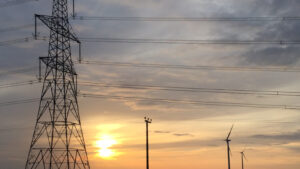National Grid DSO: home flexibility hits 100% zero carbon in 2025
Posted by: electime 24th October 2025
 Households are leading the way towards an affordable and clean energy future across the Midlands, South West and South Wales, according to recently released figures from National Grid’s Distribution System Operator (DSO).
Households are leading the way towards an affordable and clean energy future across the Midlands, South West and South Wales, according to recently released figures from National Grid’s Distribution System Operator (DSO).
Figures from the DSO reveal that every dispatched flexibility service in 2025 has been zero carbon, with most coming from low carbon technologies installed in homes across National Grid Electricity Distribution (NGED) regions.
Although fossil fuel-based sources of flexibility can participate in National Grid’s markets, renewable based flexibility sources consistently provide a better price to deliver the flexibility needed to manage the local power network.
The savings in costs between renewable and fossil fuel sources are reflected in customer bills, and the households that participate in National Grid’s markets also benefit from the price paid for their flexible use of energy.
Helen Sawdon, Head of Operations for National Grid’s DSO explained:
“Increasingly, households are adopting low carbon solutions: electric vehicles, solar panel, heat pumps and more. This shift is transforming our flexibility market, tackling both costs and carbon, while boosting resilience across the electricity network.
“Large scale commercial generators continue to be an important part of the energy mix, but undoubtedly it is households who are leading the way in the affordable and clean local energy revolution.”
“This really is something to be celebrated.” Helen said.
“Since April 2025, there have been over 6,400 flexibility dispatch events, incentivising customers to change the way they use energy, to help us manage our network. Every single one of these actions has been zero carbon and collectively they have delivered over 1,110 MWh of clean, affordable flexibility: Enough to power an incredible 148,648 homes for a day, or drive an electric vehicle to the moon and back nine times.”
Over the last year, National Grid has doubled the number of assets registered to provide flexibility services.
Helen highlighted three key customer benefits: “First, flexibility helps us manage the network more efficiently, prolonging its life and keeping costs down for customer. Secondly, flexible power from homes and local businesses is predominantly zero carbon, helping to reduce overall emissions and accelerate progress towards national clean energy goals.”
“Finally, with so many assets now registered, we are seeing a big increase in market competition, enabling us to access flexibility services that are up to 34% lower than the ceiling prices we advertised.”
“I’m certain these incredible achievements are just a taster of what’s to come as more and more households take advantage of these lower cost and lower carbon technologies.”
Companies providing flexible demand, power generation or energy storage are all invited to join National Grid’s Market Gateway platform. More information about the process to become a provider is available at https://marketgateway.nationalgrid.co.uk



